Key Highlights
- Your dietary choices directly influence the hormones that control nearly every bodily function.
- Key hormones like ghrelin and leptin are central to appetite regulation, signaling hunger and fullness.
- Poor eating habits can lead to hormonal imbalances, contributing to issues like weight gain and insulin resistance.
- A balanced diet rich in whole foods, protein, and healthy fats supports healthy hormone production.
- Specific lifestyle factors, including sleep and stress management, are crucial for maintaining hormonal balance.
- Understanding this connection empowers you to make food choices that support your overall health.
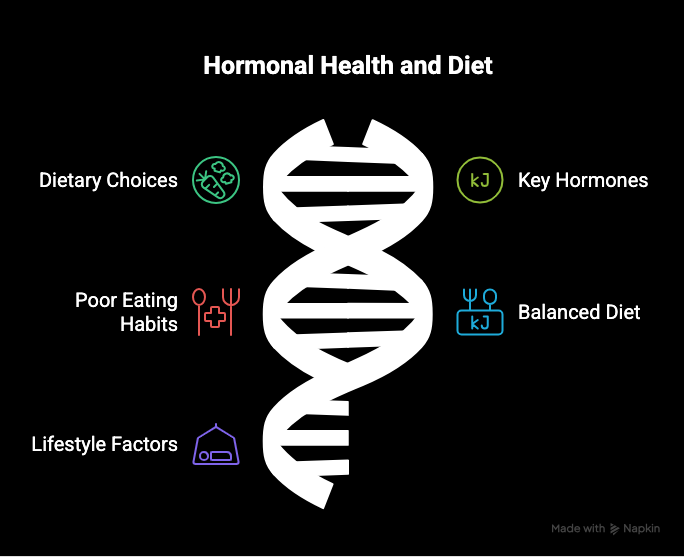
Introduction
Have you ever wondered how your meals affect more than just your waistline? The food you eat plays a profound role in orchestrating your body’s complex network of hormones. These chemical messengers regulate everything from your mood and energy to your metabolism. An imbalance in these crucial signals can lead to a host of issues, including unwanted weight gain and fatigue. Understanding the science of eating and its connection to hormonal balance is the first step toward taking control of your health from the inside out. In addition to what you eat, research suggests that eating at certain times can also impact your hormone responses, influencing metabolism and energy levels throughout the day.
In recent years, managing weight has become an increasingly critical topic, especially given that about 70% of people are overweight or obese. However, the rate of long-term success in weight loss remains low, with fewer than 5% achieving lasting results. Understanding the basics of food and body functionality is key to reversing this trend. As Dr. Kulmeet Kundlas, a primary care physician with over 25 years of experience in central Florida, elaborates, tackling weight management requires an approach grounded in scientific principles and self-awareness.
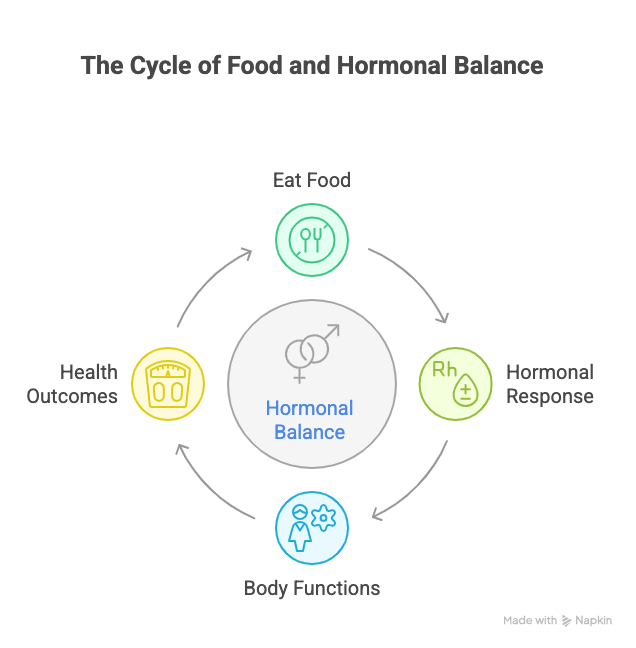
Understanding Food Basics and Its Purpose
Food is more than just sustenance; it’s an intricate part of our lives, serving as a friend, a crutch, and a constant source of pleasure. Dr. Kundlas emphasizes that food serves two primary purposes: providing energy for the body to function and supplying the building materials for maintaining cellular chemistry. Food consists of seven main components: carbohydrates, proteins, fats, vitamins, minerals, water, and fiber, each playing a crucial role in ensuring our bodies operate efficiently.
Why We Eat and Normal Eating Patterns
Eating fulfills our energy needs and provides raw materials for our “chemical factory” to keep functioning. Ideally, we should follow homeostatic eating—eating in response to genuine hunger and stopping when our body’s needs are met. Unfortunately, non-homeostatic eating, driven by emotions or social settings, spirals into unhealthy cycles, ignoring natural hunger and satiety signals.
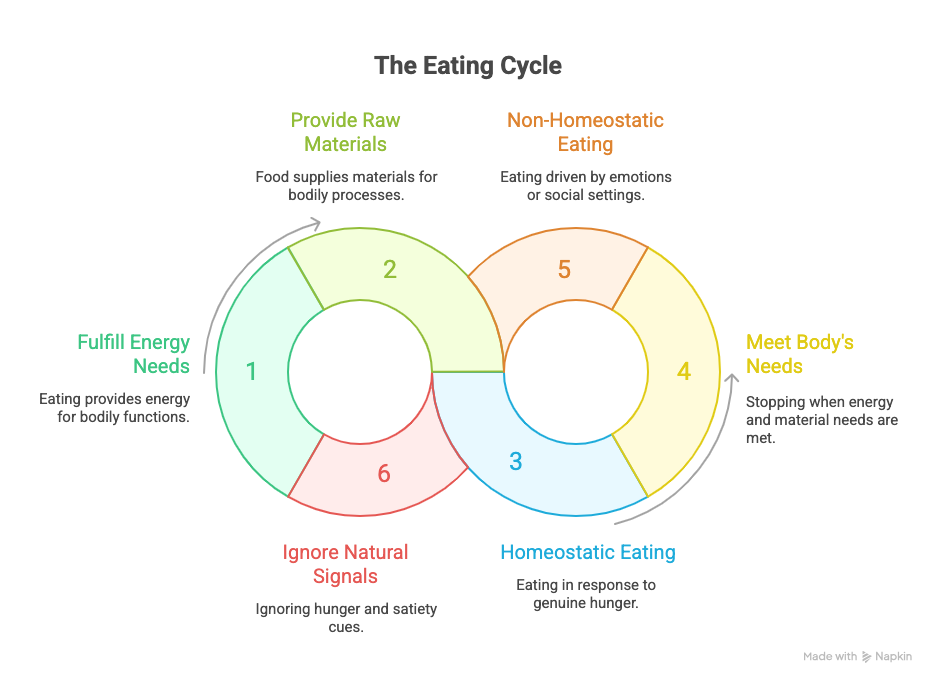
The Hunger Hormone GHRELN and Stomach Signals
When energy levels are low, the stomach produces the hormone GHRELN, which signals hunger to the brain. Consuming food that doesn’t cause stomach distension can hinder this communication, leading to difficulty recognizing when to stop eating. Gastric distention sends signals to the hypothalamus, which regulates our hunger and fullness.
Understanding Satiety and Overeating
Hormones like cholecystokinin, peptide YY, and insulin play roles in signalizing satiety once nutritional needs are met. Overeating occurs when these cues are ignored, often due to emotional or social eating patterns. Recognizing cues for hunger and satiety can prevent this and encourage mindful eating.
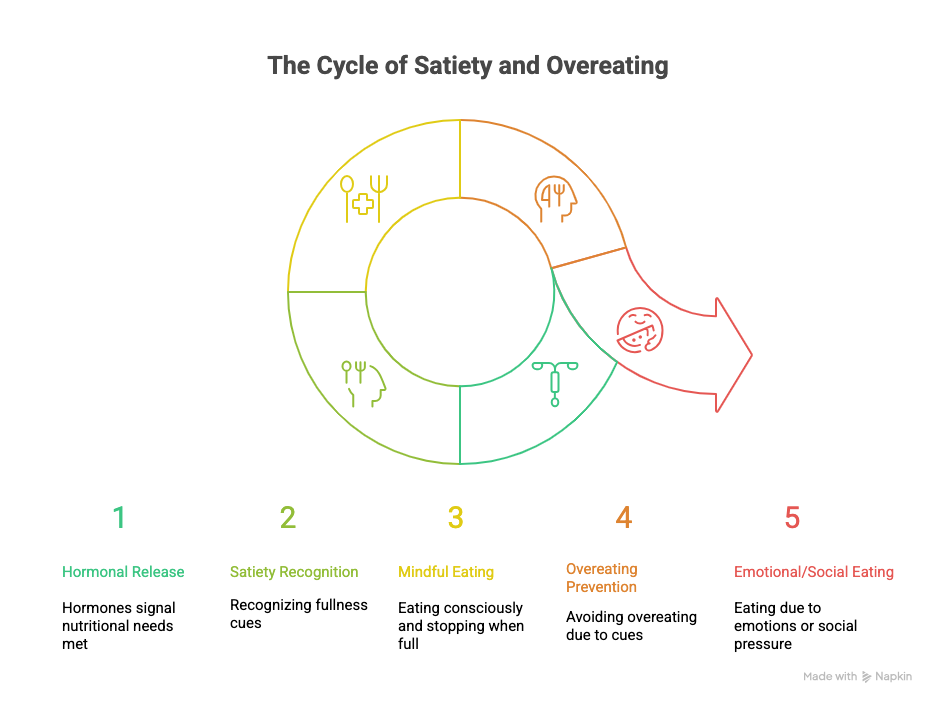
Biological Control of Hunger and Satiety
Biological, metabolic, and genetic factors collectively influence our hunger and satiety. Hormones such as leptin, insulin, cortisol, and GHRELN regulate these processes. Balancing energy intake and expenditure is crucial—starving does not yield sustainable results. Increasing basal metabolic rate (BMR) through resistance training and a high-protein diet is effective in managing weight.
Practical Tips for Managing Hunger
Implementing practical strategies is essential for successful weight management. Listening to hunger and fullness signals, maintaining a balanced diet with high nutritional density, and engaging in intuitive eating can make a significant difference. Incorporating fiber into the diet supports gut health and increases satiety.
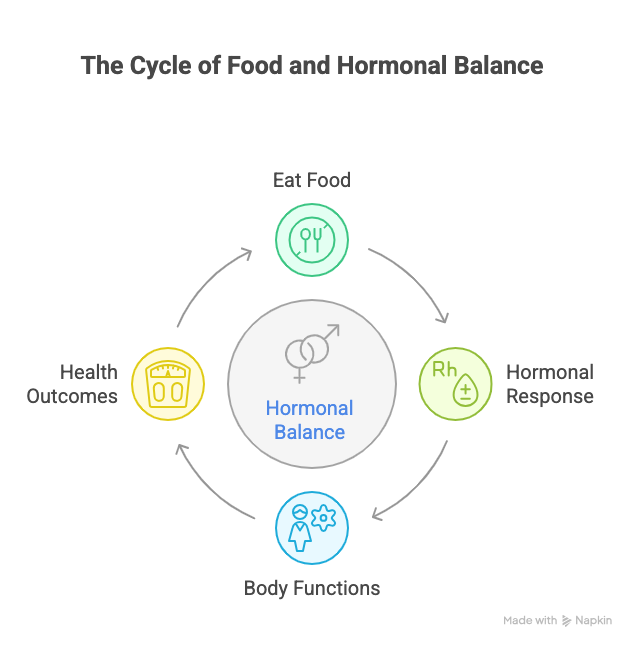
The Role of Gut Microbiome and Fiber
Fiber intake significantly influences gut microbiome composition and function, impacting everything from digestion to the immune system and mental health. Consuming enough fiber supports a diverse and healthy microbiome, aiding in proper signal transmission for fullness and satisfaction.
Food Attribute Hacks and Dietary Recommendations
Choosing foods based on glycemic index and nutritional density reduces inflammation and moderates insulin production. Consuming a variety of fruits, non-starchy vegetables, lentils, and whole grains contributes to meeting nutritional needs without over-relying on fads or eliminating entire food groups.
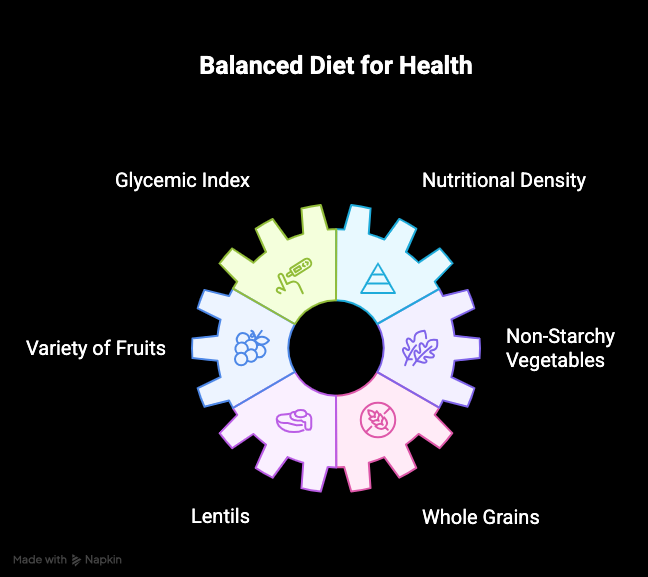
Hormones play a crucial role in regulating fat storage, influencing how the body partitions nutrients and manages energy balance, ultimately impacting weight gain and loss
https://pubmed.ncbi.nlm.nih.gov/28585204/
https://pubmed.ncbi.nlm.nih.gov/26088475/
The Science of Eating: Hormones
Conclusion
Weight management is a multifaceted challenge that requires understanding the body’s needs and signals. Through conscious eating, strategic exercise, and managing hormonal signals, sustainable weight loss and maintenance can be achieved. Dr. Kulmeet Kundlas’s insights offer a holistic framework for navigating the complexities of weight management, promoting a balanced, healthy lifestye.
Frequently Asked Questions
Can changing my diet help with hormonal imbalances?
Yes, changing your diet can significantly help with many hormonal imbalances. Adopting a balanced diet rich in whole foods, lean proteins, and healthy fats helps stabilize hormone levels and provides the necessary nutrients for optimal endocrine function.
Do hormone imbalances affect food cravings?
Absolutely. Hormone imbalances are a common cause of food cravings. Elevated cortisol levels, the stress hormone, can increase your desire for salty or sugary foods, while disruptions in the hormones responsible for appetite regulation can lead to intense hunger.
Are there specific diets proven to support hormone health?
While no single diet is a magic bullet, eating patterns like the Mediterranean diet are proven to support hormone health. These diets emphasize a balanced intake of whole foods, vegetables, healthy fats, and whole grains, which are excellent dietary choices.


